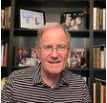-thoughts of my own
-ideas from others
-things I've read about
So here goes a somewhat disjointed attempt at making sense of them.
After a month of reading it an hour or so a day, I finished War and Peace. It gave me chills and reminded me of the Russian history and Russian language courses I completed in college.
I also recently worked two full days (8+ hours each) researching and writing something for the next edition of my textbook. When finished, and I'm not done yet, this particular passage will come to about a thousand words on a small question in an arcane area of law: the liaibility of managed care organizations in light of ERISA preemption. Writing is easy. Writing is glamorous.
If it takes me 20 hours or so to write 1,000 as yet unpublishable words on ERISA, think of how long it took Tolstoy to write the 600,000 words of his epic work. And remember, W&P is not just a novel that he dreamed up in his head and committed to paper. It's really more history than fiction. Some call it historial fiction. I would describe it as historiography spiced by fictionalized characters and passages that account for only 20% or so of the book. Even the "fictionalized" accounts are based on his personal wartime experiences in the Crimean War and meticulous research on the Napoleonic Wars of his grandfathers' time. (Remember, W&P--published in the 1860s--concerns Napoleon's disastrous invasion of Russia in 1812.) Tolstoy spent more than five years working on it. So much for writing is easy and glamorous.
Switching gears. My editor once asked me whether I outline the material for my textbook before I actually write it. I thought it funny/peculiar that she would ask, because I seldom outline anything I write. I write like a journalist, which is to say that once I have the lede* sentence or paragraph, the rest just follows naturally. Journalists are taught to structure a story like a pyramid: the lede sentence and paragraph at the top, and details cascading and expanding down to the base. That's usually how I write. The only outline is a rough one in my head.
-----
*Obsolete spelling of lead ("leed"), revived in modern journalism to distinguish the word from "lead" the verb or the metal.
-----
Speaking of funny: a dear old junior high teacher, Ethel Ray (who my mother and her brothers also had in school), used to say there are two kinds of "funny" -- funny ha-ha, and funny peculiar. I've never forgotten that and rarely use the word without thinking of her.
Some writing-related thoughts I've run into:
- James Joyce was once pouring through a dictionary looking for something. He was asked, "Aren't there enough words in there for you?" To which he replied, "No, not the right ones."
- Mark Twain: "The difference between the almost right word and the right word is really a large matter; it's the difference between the lightning bug and the lightning."

Did you mean "its the difference between the ligtNing but and the lightning" ?
ReplyDeletewhoops... bug
ReplyDeleteI heard that a reader complained to Joye that it took him months to read Ulysses. Joyce replied "It took me five years to right it, so it might take your five years to read it" or words to that effect.
ReplyDelete